0
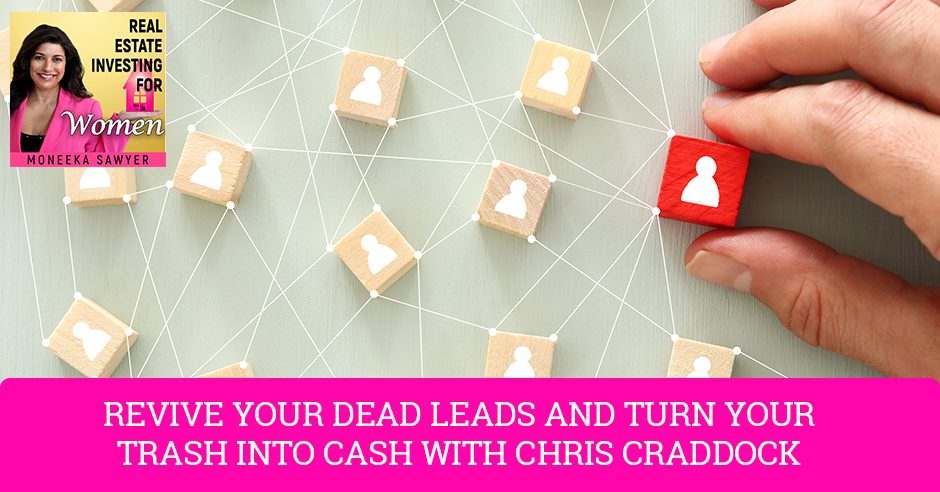
In real estate, sometimes all it takes is to look at the right places to discover the most exciting deals. For Chris Craddock, he took advantage of those dead leads that are mostly neglected and turned them into something profitable. Moneeka Sawyer talks to the mind behind the REI Revive program to discuss how to navigate such deals effectively and yield the most exciting results. Chris also talks about how important it is for an agent to think like an investor in order to perform well in the market and find the right partnerships that truly work. Finally, he shares the most helpful resources on the topic that he believes can up the game of every real estate professional today, especially when bringing back to life all those dying deals.
—
Listen to the podcast here
Revive Your Dead Leads And Turn Your Trash Into Cash With Chris Craddock – Real Estate for Women
Real Estate Investing For Women
I am excited to welcome to the show Chris Craddock. He is a nationally certified life coach and has a Doctorate in leadership. He is the host of The Uncommon Real Estate Podcast, a realtor and entrepreneur who runs multiple successful businesses in the Washington DC metro area. His team, The Redux Group, is ranked number twenty in all of Keller Williams and sold over $160 million in volume in 2020. Chris has been married for many years and is the proud father of six beautiful children.
—
Chris, how are you? Welcome to the show.
Thanks for bringing me here. I’m so excited to be with you and spend some time with you.
I’m excited that we’re going to do it on your show too. This is going to be fun, Chris. Thank you. Let’s start by you sharing a little bit about your real estate story with my ladies.
Right out of college, I was a staff with an organization called Young Life. I loved it. It was amazing. I got paid $20,000 a year from Young Life, which was great but anybody in the DC area knows you cannot survive on $20,000 a year.
What is Young Life?
It’s a Christian ministry that works with high school kids. It was life-changing for me and I loved it. I was excited to be able to give back and be a part of it. I still volunteer now. It’s been awesome. With that said, I worked there and then, when my wife got pregnant, I knew I needed to do something to make a little bit more money. I went to the library because before Google, that’s the fountain of all information. I checked out every book they had on real estate investing. I knew nothing. I always say, “Imperfect action trumps perfect inaction any day of the week.” I read these books and did what they told me to do. That’s been a standard piece of my life. I did what they said and knocked on the doors of people in distress. In the next four months, I made twelve times what I made in a year. It was unreal and unbelievable.
What were you doing when you did that?
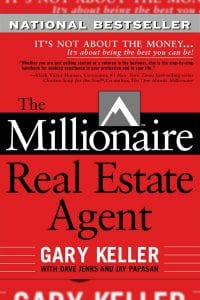
The Millionaire Real Estate Agent: It’s Not About the Money It’s About Being the Best You Can Be
I found people that were going to foreclosure. I knocked on the door and said, “I’d love to buy your house.” The crazy thing was before the crash, I was able to buy stuff with 5% down. I begged and borrowed to get the 5% and brought me in a business partner. The other cool thing was when I was in college, I worked for a landscaping business mowing lawns. At one point, I was frustrated because I felt like it was poorly run. I offered to buy the business. I bought the business and ended up selling the business right before I graduated and got married. I made a little bit of money on the sale of the business, $40,000.
I flipped the landscaping business over a year. For me, as a college kid, selling it for $40,000 was awesome. I had some money there as well that I was able to use to flip the houses and parlayed that into two more deals. I kept doing ministry. I loved ministry. I stopped flipping for whatever reason. As I had more kids and the money started to disappear faster, I got back to it. During that time, I’d gone back to school. I got a Doctorate in Leadership because I loved leading people. In ministry, I led a lot of people, wherever it was. I started flipping houses again and I read Gary Keller’s MRA book, The Millionaire Real Estate Agent.
I saw how you could build a team in a serious amount of money. We looked at it again. I followed the directions, colored by numbers and started doing it. It was December 2014 when we launched that team. It took us a couple of years to grow some million. We got there through building that team, partnering with investors, being an investor myself, and all the other pieces there. That’s a convoluted way to get to where we are now.
It sounds like there’s a big focus on you building a team that then partner with investors. I recommend what most other real estate gurus will not recommend, which is work with an agent. You can buy things off MLS or if you have an agent that has access to off-market deals or whatever. In my business and in many years that I’ve been investing in real estate, my biggest asset has been my real estate agent. Without him, I would not be where I am now. I always recommend working with an agent. Nobody else does that. It sounds like you were doing it. Talk to me a little bit more about what you guys do, why you recommend that, how it works and any advice around that.
As a residential agent that also does investment work, I remember in year 2 to year 3, I did $40 million in volume one year, and then I worked so much harder. I clawed, scraped and got to $43 million that next year. I remember hearing from somebody. His story was the same. Right after that $40 million marks, he got caught. They still went ahead but worked so much harder and got less results. We said, “Here’s the deal, as the leader of the team, as that rainmaker, what you’ve got to do is stop working hard to get one more deal and figure out how you can bring in 5 or 10 more deals.”
I started thinking to myself, I’m like, “What can I do? Where are more deals?” I’m like, “Investors.” The first thing I did was go to other people that are flipping houses saying, “I’ll help you find deals.” You find one person. You help find five flips a year. You help them buy. You help them sell that ten transactions. If you find five people that are doing that, then you’re doing a massive amount of transactions. Let’s be honest, flipping houses, when you buy them and take them down, that’s a cash-intensive business, labor-intensive, and all the other stuff. You could make a lot of money without the liability and without all of the other issues coming with it. You do some of the nice ones and then sell the rest. Frankly, you have to build a massive team in order to do all of them.
I started working with those investors and then I thought, “Who else has lots of leads?” There was a massive wholesaling organization in my market. I went to them and said, “What do you guys do with the leads that you don’t buy, fix and flip, and what do you do with the leads that you don’t wholesale?” They said, “We give them to an agent. We tried all these things. We tried to start in a brokerage. We’ve given them this agent. We gave her 1,000 leads in the last 8 months, and she’s closed like six of them. It’s not a big piece of our business. It’s not worth it.”
I said, “Why don’t you give me a shot?” They’re like, “We tried it. We’re going to keep the main thing, the main thing,” which I respect. Keeping the main thing the main thing is a good point, but what I said to him, “Have you ever looked at what Jim Collins says as the “Genius of the AND” in the Good to Great You’re already doing this. You’re already paying for these leads. They’re just dying on a vine. Why don’t you give me a crack at it? I kept going back and kept saying, “We’re good.” One of the things I’ve learned in life is persistence breaks resistance every day.
Finally, they gave me 150 leads and they said, “Here you go.” I called them all, and 70 of them were already listed or sold to an investor, 30 of them were out of my area, then I had 40 leads left. I thought, “If this other girl got six deals with 1,000 leads, I’m going to need to get six deals with these.” I did everything I could. I put on the best sales that I could ever muster. Somehow, I got six listings out of those other 40 leads. I called up the main guy running their operations. I told him and he’s like, “You got six deals out of that? I scraped up some leads that were five years old because you wouldn’t leave me alone and get you to stop bugging me. I gave you a bunch of old leads, and you got as many deals. I want you to come in. Let’s pull this thing up.”
Since then, we’ve started building it up. I have a class that I teach on this. We see everybody like brand new investors. I have a wholesaler who had five months of working the wholesale. He didn’t wholesale a deal and within 45 days of doing this, he had $10,000 in referral fees coming back to him. I see that and then you see another group that has a lot of business going on. A big organization where we’re seeing them bringing in over $60,000 a month for leads that they’ve already been paying for. Three-quarters of $1 million a year, what they were already paying for that was lying dead in their database somewhere because they couldn’t flip or wholesale it. It’s life-changing for brand new investors that have a massive organization going on.
There are people that come onto my show that can match my energy. I’m completely in awe.

Dead Leads: Stop working hard to get one more deal and figure out how you can bring in 5 or 10 more deals.
Brendon Burchard says that, “The high-performers create energy.”
Why do you think other real estate agents haven’t already worked this market? Why are they not doing the partnership with the investor’s thing?
Agents and investors should go hand-in-hand, but the reality is it’s these two separate worlds where investors think agents are idiots. Let’s be honest, a lot of them are. A lot of agents feel like these investors are mavericks that do whatever they want and don’t understand the rules of the game. Frankly, some of them are. The bottom line is you go anywhere. When I was doing ministry, whenever I do premarital counseling, one of the first things I had to say to people is, “We’ve all got baggage. We’ve all got our own crazy. Can you handle this other person’s personal brand of crazy because we’ve all got it?”
You find the people that we’re going to partner with. They’re all going to have their own baggage and crazy. It’s like, “Can you handle the crazy that this person has?” That’s the way it is. Most people don’t. To me, that’s the crazy part. They’re leaving so much money on the table. Here’s the other thing. Most agents are trying to fit a square peg in a round hole, and that doesn’t work because when somebody is called an investor and wants to sell to an investor, you can’t send an agent out there and be like, “Do you want to talk to an agent?” Every single person knows 5,000 agents. Why are they going to talk to this agent? Their uncle is a hairdresser and an agent. Everybody is.
The agent has to also understand that these people called an investor for a reason and they don’t want to talk to some agent that’s going to walk out, break it, and open the listing presentation because that doesn’t work. That’s why across the country, all these investors tell me before we start a coaching program, “I tried that. It doesn’t work.” It doesn’t work when you send an agent that doesn’t understand the psychology of a person that is willing to call an investor.
From the investor side, what do you think an investor should ask or look for in an agent that’s going to be investor-friendly?
There are a couple of things. One, if you’re going to work on a program like this, anybody that you ever go in business with has to hit four criteria, happy, hungry, humble and smart. They need to be happy. If they’re not happy, wherever you go, there you are. If you see somebody that’s complaining about splits, commissions, referrals or anything like that, it’s a matter of time before they’re going to complain about you. You want somebody that’s genuinely happy and hungry. If you rip open their chest, they need to have a heart of a lion. If you get somebody that you say no, and they’re like, “It probably wasn’t a good one anyway.” That’s not who you want. You want somebody that is so hungry that you close the door and they’re climbing the window.
Somebody that won’t stop like you call the investor and say, “Send me the leads.” You bug them so much in a nice way that they still like you enough to not tell you, “Stick it somewhere.” They don’t give you 150 old dead leads just to leave them alone. You need to have somebody that’s persistently passionate and hungry, wants to win, humble, willing to sit at other people’s feet, willing to color by numbers, doesn’t think they’ve all got it figured out. If you meet somebody that’s got it figured out, introduced me to that person because I’ve yet to meet that person, and then smart.
It’s not just somebody that gets into Harvard-MIT. It’s somebody that understands EQ as well, emotional intelligence, understands how to read somebody, and how to be personable with somebody. That’s what you’re looking for in an agent. I’m reading a book called Who Not How. It is a business partnership. If you pick the right person to partner with, all the other pieces can be figured out. If you don’t pick the right person, you can give them all the information in the world, and they’re still going to squat on it and waste your whole lot of time and money.
I talk a lot about finding real estate agents that are investors themselves because that’s a big factor too. You want to be in the mind of an investor to serve an investor. You don’t want to be somebody who’s away from it. These are great tips. Thank you so much for that. Tell me about your REI Revive program and how can we find out more about it?

Dead Leads: If you don’t pick the right person to work with, you can give them all the information in the world and still squat on it.
My website, ChrisCraddock.com. You can also follow me on Instagram @CraddRock. I usually try to respond to any direct messages or DMs on Instagram. REI Revive is teaching people how to do what we’ve been doing. We’ve seen massive success. You’ve got to learn how to pick the right agent and how to hand off the leads because most people use the wrong script in handing off the leads. In the second part, you also need to learn how to sort your database because a lot of times, people are worried about cannibalizing their own leads, but they don’t realize that the reality is you had one lead followed up with for two years, but you had about 60 that would have closed with an agent and you would have made a whole heck of a lot more money.
The problem is oftentimes, emotionally, we remember that one deal where if we step back and look at it analytically, we’ll realize that we’re leaving a lot of money on the table for leads that are going to sell with somebody that might as well get paid for it. We teach that. The first half is teaching the investor. The second half is after we’ve taught the investor how to hand off everything and how to pick the right agent, we teach the agent how to close. That’s the whole thing. Agents think they know how to close, but the reality is they do their old tired listing presentation and it doesn’t work. You need to speak to an investor. Somebody that’s called an investor needs to be spoken to differently than somebody that calls a real estate agent.
Chris and I are talking about possibly creating some extra cool stuff for my ladies. Make sure that when you connect with him, you let him know you came from this show so that if we have worked something out that you can take advantage of that. Things are constantly evolving in the world and with our relationships. If you connect with anybody from this show, make sure they know you came from me, and who knows? You might get some fun surprises. ChrisCraddock.com and when you connect with him, say you came from Real Estate Investing For Women with Moneeka. We’ll see where that goes. What I love is that you first talk to and train the investor, and then you help to train the investor’s agent, which is like magic.
That’s the whole thing. You can train one but not the other and it doesn’t work. It requires the investor to understand how to put together their system so that you do it and scale it. It requires the agent to follow the system once they’re in front of the people, everything from the precall before you get there. Even once you’re in front of the people, how to find out why they’re there. I’ll give a sneak peek of this. Anybody that calls an investor instead of an agent wants certainty. There are 1 of 5 reasons they do it. One, they want to avoid a commission. Two, they want to sell fast. Three, maybe they’re a hoarder and they don’t want their neighbors to see pictures or see the sign in the yard or anything else. Four, they feel like their house is too much of a mess to put on the MLS. Five, they don’t want people coming through their house at all hours.
If you can answer those objections, you can sell to anybody. It’s like a doctor. I played rugby in college and destroyed both of my shoulders. Every once in a while, I would go in and get my shoulders checked because I jack them up again. The doctor will do all of these things to find the pain, then once he finds the pain, he does this thing called a crank test where he comes around like this and it’s painful. When he hears me scream, he does it again. He presses the pain point and then he presses it again. He says, “Your shoulder is jacked up again. Here’s your prescription. I want you to do physical therapy. See the orthopedist.” It’s the same thing for us. The agent goes to the seller and finds out what their pain point is. You press it and then you press it again. You then say, “Here’s my prescription. Here’s how I can solve the pain point.” The people that make the most money are the people that solve other people’s problems.
Ladies, connect with Chris. I have never met anybody who will train the investor and then train the investor’s agent. If I’m trained and then I have to go train my agent, I’m still a beginner. I can train a little bit certainly but I train a lot better now after many years when I did my first deal. To be able to do both of those things, that’s magic.
I’m excited about seeing the results that we’ve had with many people from beginners to seasoned vets that have massive businesses. It’s been fun and I love it. For me, having a Doctorate in Leadership, it took a lot to go back and get that done, but I’ve loved helping people. Zig Ziglar says, “You can have everything you want in life if you help enough other people get what they want in life.” What I’ve found is good leadership is helping people get what they want. That’s the fun part about opening this program and helping people understand like, “You’ve got hundreds of thousands of dollars in leads and CRM that you don’t realize are there.”
There’s another story that I love to share. These sawmills were milling wood but they were hardly making a profit at all, which I know a lot of investors are working their butts off, but they’re not making that much money. They’re like, “It’s around the corner.” The crazy thing is somebody got the idea with these sawmills. They’re like, “What if we were to repurpose the byproduct? What if we were to take the sawdust and be able to create candles, burn it, particleboard, all these other things you could do with sawdust?” They started selling the sawdust. They were sometimes making more money on the byproduct than they were on the wood they were milling. The same thing is true here. People are paying tens of thousands of dollars for leads but then the ones that they’re not able to fix and flip, wholesale, creative finance, or whatever they’re doing, they’re throwing it away. They’re leaving it in the CRM and they don’t realize they’re leaving mountains of cash in their CRM.
Do you recommend where people can find these leads? Let’s say they’re beginners. They don’t have the leads that they need to revive. They just need leads. Do you have resources to help people get leads and stuff too?
There are many different places. DM me and I’ll set you up with some classes. I know you’ve got a couple of questions for me that we’re going to jump into as far as some rapid-fire things, but one of them is find people that are going to help you. Find mentors because there’s no reason for you to reinvent the wheel. Find people that know the path and then followed their path. I’ve said this over and over to color by numbers. If you DM me, I’ll give you the names of some of the companies where you can find data and skip trace numbers, but here’s the easiest one. You either have money or you have time. You got to be able to invest one or the other.
If you don’t have either then don’t get into this business because you’re not going to succeed. Have time. We’ve all got 24 hours. When I got my real estate license to start the licensing piece, I got licensed in a week. I chose not to sleep that week. I stayed up late and decided to pay that price. I didn’t watch any Netflix and didn’t do anything. I did my normal job and then stayed up late and knocked out the other stuff. The bottom line is the fact that you don’t have any time is a myth. I’ll say one last thing on this. I ran a marathon a few years back. When I was training and we would have excuses why we wouldn’t train. At that time, George W. Bush was the president. He would run 5 miles every day. At some point, we were like, “If he is making the time to run 5 miles every day and he’s the president, my job is a lot less important than his. If he can figure it out, I can figure it out.”
The same thing is true for you. You decide your priorities. It’s not the lack of resources. It’s the lack of resourcefulness. A long way around, the question that you asked me originally is if you don’t have any money, it’s called driving for dollars. You drive around. You look for the ugliest houses you can find, and then you take a ping, put it in your phone, and put the address. You get 50 to 100 of those houses and then you go to any skip tracing program. You go into the data program. If you text me or DM me, I’ll give you the names of some of them that I recommend. If you go into a program, they’ll give you cell phone numbers, email addresses, everything for the people that live there. Some of them will be good, but then you can spend the next day. You take 1 or 2 hours, and you call through everybody. Your script is simple, “Are you looking to sell your house? If you’ve got the right price for it, I’d like to buy your house.” You offer to buy their house. They’ll say, “What do you want to sell for?”
Here’s another tip. There’s a book called Never Split The Difference by Chris Voss. It’s the best book on negotiating out there, in my opinion. One of the things he talks about is anchoring. You want them to give you the price. You say, “I’m interested in your neighborhood. I’m looking to see what you’d be willing to sell for. Do you have a number in mind that if me or a business partner of mine were able to buy your house that you’d be comfortable selling?” You asked in different ways until they give you a number. You don’t want to give them the number. You want them to give you the number. When they say yes, that’s great.
You get the number. You say, “Let me do my research.” Do your research, see if you can do it, you negotiate the number down, then you got your first house. Some of these other programs will teach you how to wholesale it or fix and flip, creative finance, and all the other stuff. There’s probably more than we can get into in this episode. That’s the easiest way to and the most cost-effective way to get started and find your first deal.
What do you do with them? In your program, what you focus on is building those relationships, but then you lead people to the next place, which is what they are going to do with those houses once they get them. There are a million things you can do with these houses once you’ve got one in a contract.

Dead Leads: If you don’t have either time or money, don’t get into this business because you’re not going to succeed.
There’s a number of programs that I recommend that will teach you how to get those deals. DM me on Instagram and I’ll be happy to put you in touch with some people, then we can go from there. They’ll teach you how to bring in the deals. Let’s say you’re driving for dollars and somebody says, “I’ll sell my house for X dollars,” but you look at it and like, “I can’t buy or fix and flip this. My program teaches you how to partner with an agent who can go list it and get a commission there.
There are some rules about how agents can pay commissions and referral fees. You have to figure that out and everything else. Essentially, if you find somebody that’s willing to sell but they’re not willing to sell for $0.65 or $0.75 on a dollar, then there are other ways to monetize that. Most people aren’t doing that. That’s the whole thing. You got to figure out how you want to make money. You can do anything, but you can’t do everything. You find your niche, you dive in and you get it done. I know you have a unique niche that you’re in. If everybody can find their niche, go all in and make it happen, you can make a lot of money.
Chris, remind everybody how they can reach you.
ChrisCraddock.com is the website. On Instagram @CraddRock. I try to respond to every DM. My business page on Facebook is @ChrisCraddock.
Anytime you connect with Chris, make sure you let him know you came from me. Are you ready for our three rapid-fire questions?
Let’s do it.
Give us one super tip on getting started investing in real estate.
Find somebody that’s doing it well. Spend money, buy them a nice lunch and offer to buy them. I know we’re in the COVID world, so it’s harder to get together. If you want to shorten your learning curve, you find some people that are good and do it. If they’re not in your market and you can’t find them, find somebody you listened to in a podcast, reach out to them and ask their advice. People are so much more generous than you think they are with their time. I’m going to give 1.5 tips. Buy the coaching products. Everybody’s like, “I can find this online.” You can find all of these things online, but you want to find one that’s good, that’s going to walk you step-by-step how to get your first deal. Spend the money. It’s the best money you’ll ever spend if you do it.
Go spend the money and then sit on it. What is one strategy for being successful in real estate investing?
There are two pieces, activity and skill. You don’t even have to be that good if you talk to enough people. You don’t want to any secret about it. An awful salesperson who talks to 1,000 people a day is going to outperform a great salesperson that talks to three people a day. My whole thing is activity and skill. Figure out how to talk to more people. At first, if you have no money, you do it by driving for dollars and you call. As you earn money, then you can do more marketing where you’re sending out direct mail, voicemail drops, or all of the other options that you have to reach out to people. Talk to enough people and then skill up. The way you skill up is every single day, you should never have a day that goes by where you’re not doing at least 30 minutes of personal development.
You’re reading, listening to podcasts, listening to audible books, whatever it is. I recommend an hour. I’d usually do about at least an hour a day. If you don’t have that, your business will grow and your life will go to the extent you grow. If you want to grow, you need to bring stuff in to change your mindset and to be able to think bigger. Here’s the other side. I talked about meeting mentors. I have more mentors in my life that I’m never ever met because I’ve read and listened to everything they’ve ever said. Find those people and bring them into your life.
What is one daily practice that contributes to your success, other than reading and personal development? That was a great tip and I love that one.
Here’s the last piece, many of us had these yearly goals that we never hit. I always call this dialing it back to your irreducible minimums. If you want to win the year, you’ve got to win your quarter. If you want to win your quarter, you got to win your month. If you want to win your month, you got to win your week. If you want to win your week, you got to win your day. If you want to win your day, you’ve got to win your morning. Most people wake up in the mornings and play defense. They figure out, “What’s coming at me?” Handle that.
There’s a book called The ONE Thing. The way they define that is what is one thing that if I do this, all other things will become easier or unnecessary. If you figure out what your one thing is that you need to do that day that will move a rock, so that you win your day, so that every single day you do that one thing in the morning because if you get it later in the day, all just gets pushed to later. Do it in the morning. Win your morning, which wins your day, week, month, quarter and year.
I wrote a book many years ago called Choose Bliss. One of the very first after the intro is all about the morning routine. We all have a morning routine but most of us don’t have a morning routine that serves our day. We wake up playing defense instead of playing offense. If you plan it, you do it intentionally, and now you’ve set yourself up for what I call bliss, what you might call success, you’re setting yourself up to win the day. I love that. Thank you for that.
This has been awesome.
Chris, thank you so much for joining me on this show.
Thanks for having me. This is a lot of fun.
Ladies, thank you for joining Chris and me on the show. I look forward to seeing you next time. Until then, remember, goals without action are just dreams. Get out there, take action, and create the life you heart most deeply desires.
Important Links
About Chris Craddock
 Chris Craddock, the Redux Group Team Leader, is a Northern Virginia native and father of six who has been successfully investing in real estate for over a decade.
Chris Craddock, the Redux Group Team Leader, is a Northern Virginia native and father of six who has been successfully investing in real estate for over a decade.
He is a licensed Realtor® in Washington, D.C., Maryland, and Virginia. A Nationally Certified Life Coach, Chris is passionate about helping others achieve financial and personal success.
He is known for his relentless pursuit of the best deals for his clients.
Love the show? Subscribe, rate, review, and share!
Join the Real Estate Investing for Women Community today:
______________________________________
To listen to the EXTRA portion of this show go to RealEstateInvestingForWomenExtra.com
To see this program in video:
Search on Roku for Real Estate Investing 4 Women or go to this link: https://blissfulinvestor.com/biroku
On YouTube go to Real Estate Investing for Women

Moneeka Sawyer is often described as one of the most blissful people you will ever meet. She has been investing in Real Estate for over 20 years, so has been through all the different cycles of the market. Still, she has turned $10,000 into over $5,000,000, working only 5-10 hours per MONTH with very little stress.
While building her multi-million dollar business, she has traveled to over 55 countries, dances every single day, supports causes that are important to her, and spends lots of time with her husband of over 20 years.
She is the international best-selling author of the multiple award-winning books “Choose Bliss: The Power and Practice of Joy and Contentment” and “Real Estate Investing for Women: Expert Conversations to Increase Wealth and Happiness the Blissful Way.”
Moneeka has been featured on stages including Carnegie Hall and Nasdaq, radio, podcasts such as Achieve Your Goals with Hal Elrod, and TV stations including ABC, CBS, FOX, and the CW, impacting over 150 million people.

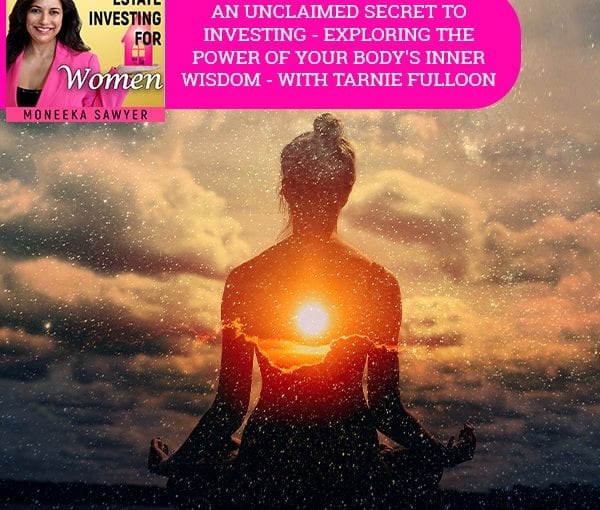
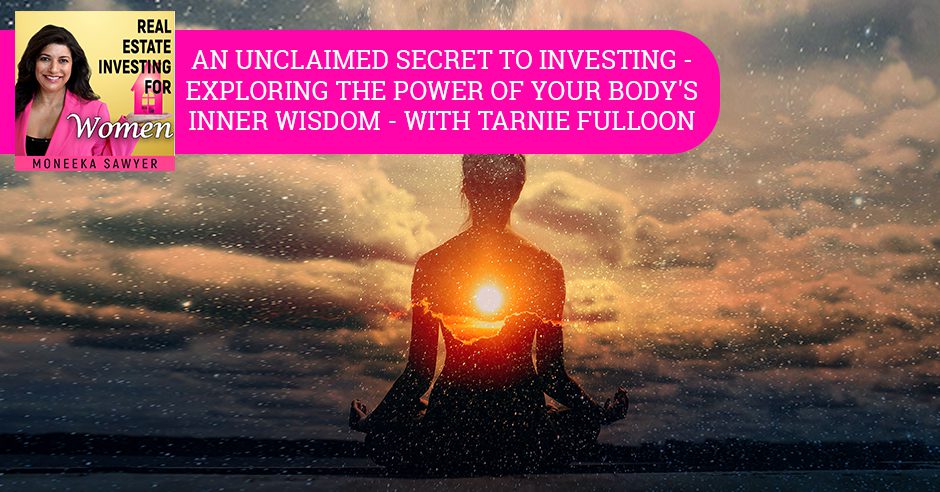


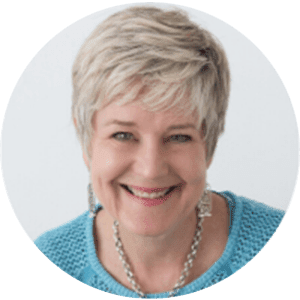 Tarnie Fulloon, transformational mentor, workshop facilitator, writer, and author, partners with professional women so they can make intimate relationships thrive.
Tarnie Fulloon, transformational mentor, workshop facilitator, writer, and author, partners with professional women so they can make intimate relationships thrive.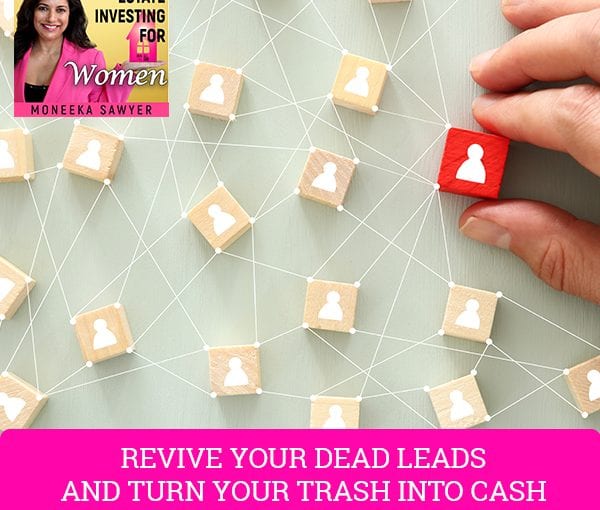





 Chris Craddock, the Redux Group Team Leader, is a Northern Virginia native and father of six who has been successfully investing in real estate for over a decade.
Chris Craddock, the Redux Group Team Leader, is a Northern Virginia native and father of six who has been successfully investing in real estate for over a decade.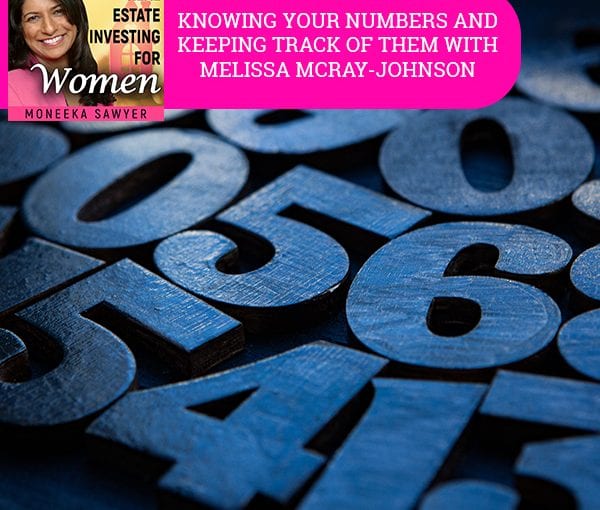
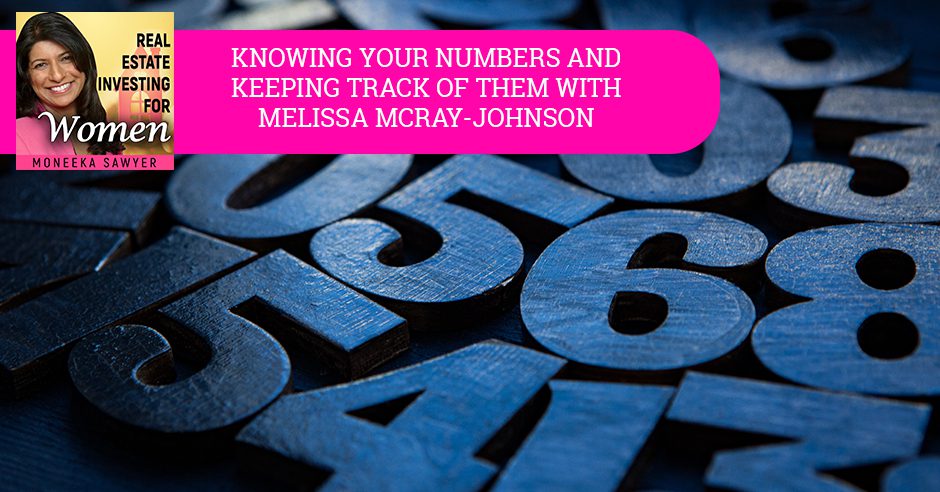



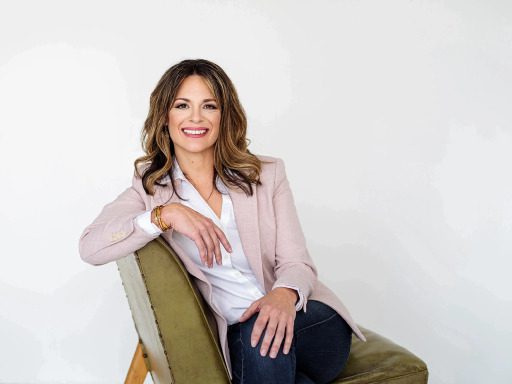 Melissa Johnson has been flipping houses in San Antonio, TX since 2003, growing and expanding the business into a thriving real estate investment operation. With over 1000 houses flipped, she has also built a portfolio of rental properties and real estate notes while raising five children.
Melissa Johnson has been flipping houses in San Antonio, TX since 2003, growing and expanding the business into a thriving real estate investment operation. With over 1000 houses flipped, she has also built a portfolio of rental properties and real estate notes while raising five children.